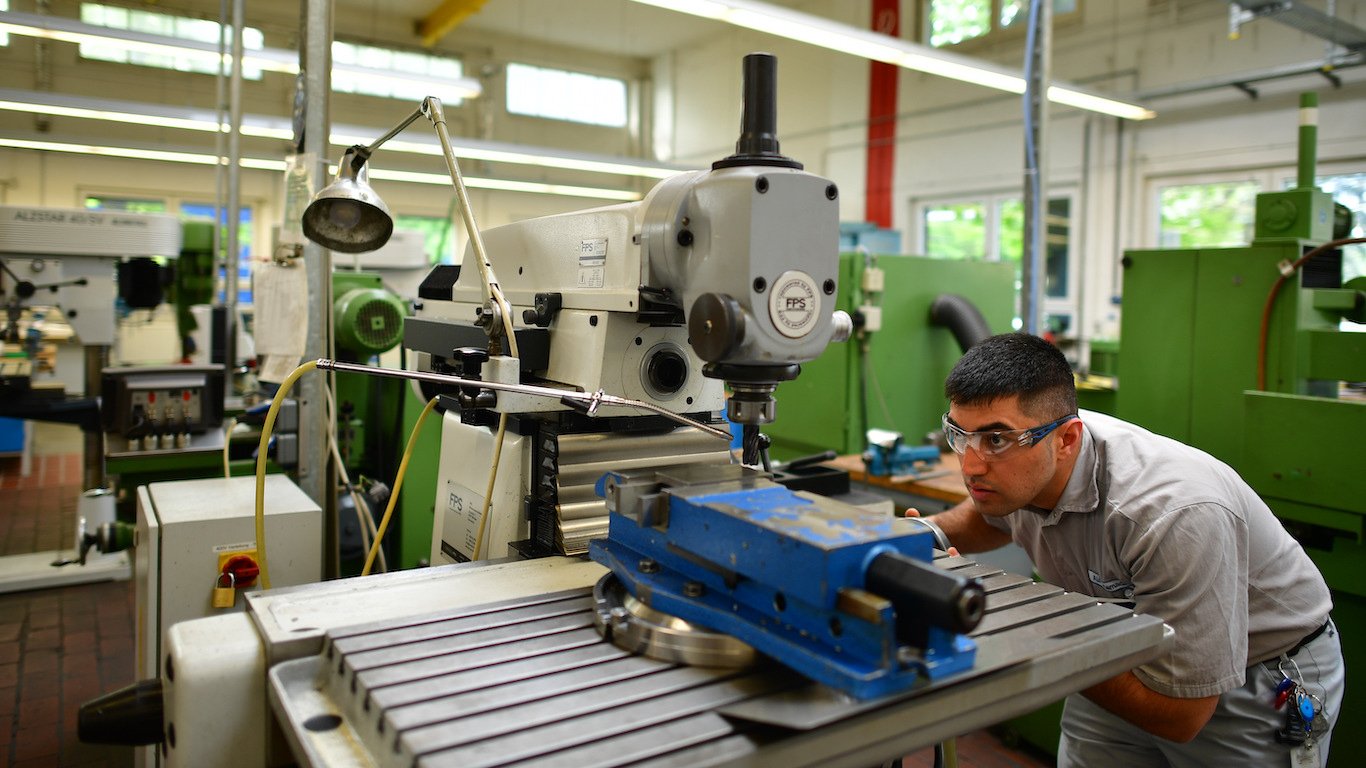

About two-thirds of companies responding to a survey on 2020 business conditions expect inflation-adjusted gross domestic product to rise by 1.1% to 2.0% over the course of the year. While that percentage is roughly the same as the result of the October survey, the share of companies that expect stronger growth rose from 20% to 31% over the same period.
The results were released Monday in the National Association of Business Economics (NABE) January survey of business conditions. The survey was conducted between December 23 and January 8 and likely does not include concerns related to the outbreak of coronavirus in China that was first identified on January 7.
The survey’s net rising index (NRI), which is the percentage of panelists reporting rising sales minus the percentage reporting falling sale, fell to 15. That was a third consecutive drop and the lowest index level in 15 years.
Survey chair Megan Greene, senior fellow at the Harvard Kennedy School, commented:
For the first time in a decade, there are as many respondents reporting decreases as increases in employment at their firms than in the previous three months. However, this may have been due to difficulty finding workers rather than a pullback in demand. There was a significant increase in the percentage of firms reporting shortages of unskilled labor, while nearly half reports shortages of skilled labor.
The NRI for wage and salary growth has risen by 22 points since October to 52, and the forward-looking NRI for wage costs is up by 18 points to 62.
Survey respondents reporting shortages of unskilled labor rose from 11% in October to 18%, a new high for this metric. The percentage of respondents reporting skilled labor shortages remained unchanged at 43%, well below the January 2019 peak of 53%. In contrast, 43% of panelists report no shortages of labor, capital goods or other inputs at their firms.
Nearly half (47%) of companies have responded to labor shortages by raising wages, and 44% have increased training for existing staff. More companies are also investing in process improvements to reduce labor costs, with more than a third (36%) spending more now.
The NRI for capital spending ticked up from 17 to 18, but that’s the second-lowest level since 2016. Goods producers reported “large declines,” but 36% also reported more capital spending on equipment and information technology.
Only 12% of goods producers reported no impact from the tariff wars, while about three-quarters of finance and service providers reported no impact.
It may still be too early to estimate the impact of the coronavirus outbreak. U.S. markets traded down in Monday’s premarket, but losses had been pared elsewhere, with European and Asian indexes (excepting the Shanghai Composite and Shanghai Shenzhen) trading higher.
Essential Tips for Investing: Sponsored
A financial advisor can help you understand the advantages and disadvantages of investment properties. Finding a qualified financial advisor doesn’t have to be hard. SmartAsset’s free tool matches you with up to three financial advisors who serve your area, and you can interview your advisor matches at no cost to decide which one is right for you. If you’re ready to find an advisor who can help you achieve your financial goals, get started now.
Investing in real estate can diversify your portfolio. But expanding your horizons may add additional costs. If you’re an investor looking to minimize expenses, consider checking out online brokerages. They often offer low investment fees, helping you maximize your profit.
Thank you for reading! Have some feedback for us?
Contact the 24/7 Wall St. editorial team.



